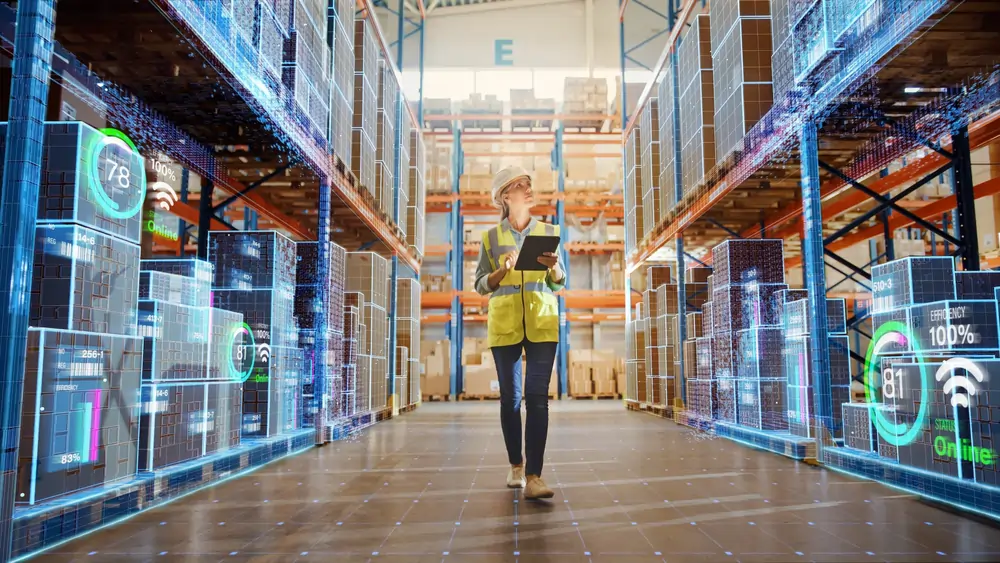Integration of logistics and transportation: new strategies for industry

John E. Kaye

In the context of transportation for industry, the application of modern logistics strategies is critical. How do we integrate logistics with transportation to create a cohesive supply chain that promotes business stability?
Why is the integration of logistics data necessary?
Forced downtime in the delivery of parts or warehouses overflowing with finished goods means impediments to business goals and, thus, a financial loss for the entrepreneur. Such unfavorable situations can occur due to inadequate planning of the supply chain from scratch and insufficient flow of information between its various elements. Therefore, logistics data collection and analysis are essential if the goal is to effectively manage transportation in the industrial sector – primarily if the company operates in a global market.
Digitalization in the service of industrial transportation – modern solutions
Modern logistics uses state-of-the-art technological advancements to optimize processes and plan the supply chain and transport routes most efficiently. Big Data, IoT, and AI solutions are primarily used. Moreover, it is optional to implement them internally. Using AsstrA’s professional logistics and transportation services will prove equally effective.
Analyzing data through a Big Data system has one benefit. It makes it possible to review a large amount of complex information quickly and instantly draw conclusions from it. It reduces the human factor, which in such activities proves unreliable and relatively expensive. After all, the work done by a single program would have to be carried out by several or a dozen people, and even then, there is no certainty that the result would be equally precise. Artificial intelligence (AI) will do an excellent job supporting the analysis of massive databases, forecasting demand, and matching production to the results.
Thanks to the Internet of Things (IoT) solutions, logistics data includes information on issues such as locating transportation at each stage, recording potential damage, and monitoring goods’ storage conditions. All of this data is collected in real time using special sensors situated in the means of transportation used and in warehouses and logistics centers.
What can be gained by integrating logistics and transportation data?
The integration of logistics and transportation mainly aims at optimizing the supply chain and thus ensuring a constant flow of goods, which is essential for the smooth operation of any industry. This, in turn, can translate directly into increased profits while reducing losses due to downtime or missed deliveries.
Logistics data analysis is an excellent tool for entrepreneurs who aim to scale their business. It allows you to identify those areas of the logistics processes that pose the most problems and then look for solutions to deal with them. By understanding how the supply chain works step by step, you can efficiently trace the process and eliminate profit-declining points.
Based on facts, you can also improve inventory management for materials and raw materials used in production processes and finished goods prepared for shipment to target customers. Identifying demand and embedding it in a specific timeframe can help eliminate problems resulting from overstocking and supply shortages. However, forecasting must be continuous and always based on recent information.
Optimal scheduling of transportation routes can also result from analyzing logistics data. As a result, empty runs will be eliminated, deliveries will be made on time, and transportation will become more environmentally friendly.
Integrating logistics and transportation with innovative technological solutions is designed to modernize the process while achieving the highest possible profits with the least resources. It’s also a way to adapt quickly to market changes and stay ahead of the competition. In the long run, investing in advanced Big Data or IoT solutions will pay off and provide a financial advantage.
RECENT ARTICLES
-
 Managing cross-border risks in B2B e-commerce
Managing cross-border risks in B2B e-commerce -
 Research highlights rise of 'solopreneurs' as technology reshapes small business ownership
Research highlights rise of 'solopreneurs' as technology reshapes small business ownership -
 Human resources at the centre of organisational transformation
Human resources at the centre of organisational transformation -
 UK government sets up Women in Tech taskforce amid gender imbalance concerns
UK government sets up Women in Tech taskforce amid gender imbalance concerns -
 Liechtenstein lands AAA rating again as PM hails “exceptional stability”
Liechtenstein lands AAA rating again as PM hails “exceptional stability” -
 The Parisian business school quietly reinventing the MBA
The Parisian business school quietly reinventing the MBA -
 UK entrepreneur who founded £1bn firm acquires UAE amateur golf leader to launch world amateur Super League
UK entrepreneur who founded £1bn firm acquires UAE amateur golf leader to launch world amateur Super League -
 Why your home is the best place to teach children leadership
Why your home is the best place to teach children leadership -
 Inside the Spring 2025 Edition of The European
Inside the Spring 2025 Edition of The European -
 The Paris MBA designed for real-world leadership
The Paris MBA designed for real-world leadership -
 Soft2Bet reflects on eight years of leadership and philanthropy in new film featuring CEO Uri Poliavich
Soft2Bet reflects on eight years of leadership and philanthropy in new film featuring CEO Uri Poliavich -
 Global Banking School celebrates ‘milestone’ anniversary
Global Banking School celebrates ‘milestone’ anniversary -
 Saudi Arabia hosts the fourth Riyadh International Humanitarian Forum
Saudi Arabia hosts the fourth Riyadh International Humanitarian Forum -
 New York Congresswoman pushes for Trump’s birthday to be enshrined as federal holiday
New York Congresswoman pushes for Trump’s birthday to be enshrined as federal holiday -
 Red light, green bite: Netflix restaurant opens in Vegas
Red light, green bite: Netflix restaurant opens in Vegas -
 Read our Cybersecurity Focus supplement, featuring insights from Information Security Forum
Read our Cybersecurity Focus supplement, featuring insights from Information Security Forum -
 Davos World Economic Forum 2025: Collaboration for the Intelligent Age
Davos World Economic Forum 2025: Collaboration for the Intelligent Age -
 The European releases its Winter 2024/25 edition
The European releases its Winter 2024/25 edition -
 Read our FDI Focus supplement, featuring insights from Michael Lohan of IDA Ireland
Read our FDI Focus supplement, featuring insights from Michael Lohan of IDA Ireland -
 PizzaExpress to Expand Dough Base Stateside
PizzaExpress to Expand Dough Base Stateside -
 The two core skills middle managers need to navigate stormy weather
The two core skills middle managers need to navigate stormy weather -
 The Role of Financial Regulations in the Online Casino Industry
The Role of Financial Regulations in the Online Casino Industry -
 How to become a game-changer
How to become a game-changer -
 Taking the risk out of BOP ventures
Taking the risk out of BOP ventures -
 Releaf leading the way with marketing
Releaf leading the way with marketing



























